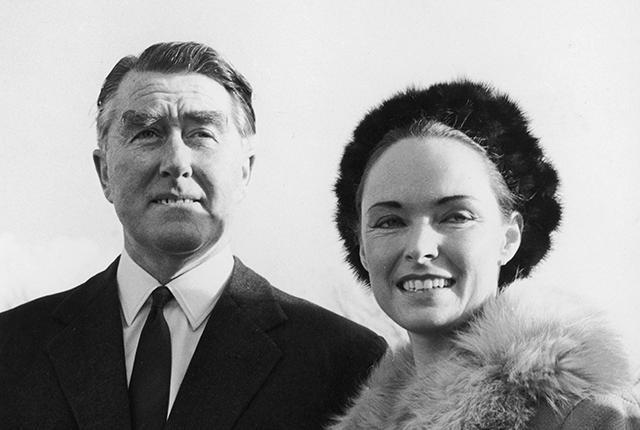Some micronations are serious attempts driven by political ideology, while others are more like practical jokes. By some accounts, over 400 currently active micronations now exist. Here are 15 of the most interesting from the past few decades:
1. VÍT JEDLI?KA // LIBERLAND
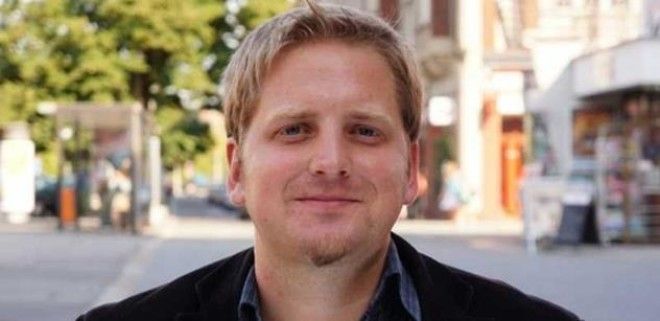
In April 2015, a Czech man named Vít Jedli?ka declared that an otherwise unclaimed 2.7-square-mile patch of land between Serbia and Croatia was now a libertarian paradise called the Free Republic of Liberland. According to the micronation’s website, “The motto of Liberland is ‘To live and let live’ because Liberland prides itself on personal and economic freedom of its people.”
Applications are currently being accepted for citizenship from those who 1) have respect for others and their opinions, 2) “ have respect for private ownership, which is untouchable,” 3) do not have a “Communist, Nazi, or other extremist past,” and 4) have not been punished for past criminal offenses. Jedli?ka told TIME that within a few days of his announcement he had received 20,000 citizenship applications, although he planned to accept just 3000 to 5000.
At the time of the announcement, the only structure in the area was a dilapidated hunters’ lodge, and police in both Croatia and Serbia have since blocked access to the area. Nevertheless, “President Jedli?ka” is currently making international visits to drum up support for his new nation."
2. PADDY ROY BATES // PRINCIPALITY OF SEALAND
One of the world’s more successful micronations was founded in 1967 on an abandoned former WWII anti-aircraft gun platform about seven miles off the coast of England. Former British Army major Paddy Roy Bates originally occupied the 120-by-50-foot platform in 1966 to transmit pirate radio broadcasts, and later declared it his own nation: The Principality of Sealand.
Today, Sealand continues its radio broadcasts and has also become an online data haven. Since 1999, it’s been ruled by Bates’ son, Prince Michael, and boasts its own chapel, prison, flag, currency, stamps, national anthem, and passports, as well as a strained relationship with Great Britain, which doesn’t recognize its existence but has mostly left it alone. It also sells royal titles—“The perfect gift for the person that has everything!”
3. LEICESTER HEMINGWAY // REPUBLIC OF NEW ATLANTIS
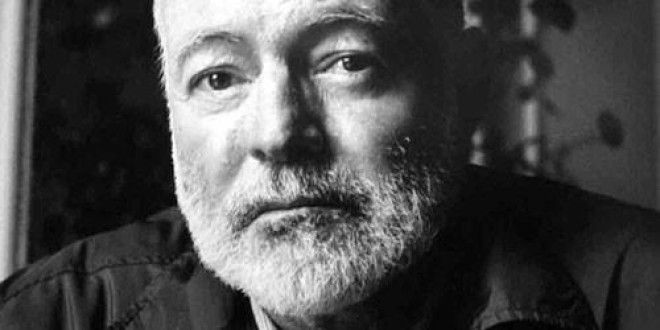
On July 4, 1964, Leicester Hemingway, younger brother of writer Ernest Hemingway, declared that half of an 8-by-30-foot bamboo raft in international waters off the coast of Jamaica was his own country: New Atlantis.
Hemingway claimed to derive his authority from the U.S. Guano Islands Act of 1856, which authorized U.S. citizens to take possession, on behalf of the U.S. government, of any unoccupied “island, rock or key” on which a deposit of guano was found. (Guano, or bird excrement, was then considered a valuable commercial fertilizer.) Hemingway declared that half his “island” now belonged to the U.S. government, while the other half was reserved for New Atlantis.
Hemingway hoped to run a marine research society funded by profits from selling New Atlantis stamps, but things didn’t turn out as he'd hoped. The Universal Postal Union refused to recognize his country or the stamps, and the raft was destroyed by storms a few years later, its remains pillaged by fishermen.
4. JEREMIAH HEATON // KINGDOM OF NORTH SUDAN
In 2014, Virginia farmer Jeremiah Heaton claimed a plot of land between Sudan and Egypt, Bir Tawil, as his own country so that he could declare his seven-year-old daughter a princess. His daughter declared herself delighted, but no governmental entity has recognized their claim. A somewhat controversial film is said to be in development about their story.
5. TOMÁŠ HARABIŠ // KINGDOM OF WALLACHIA
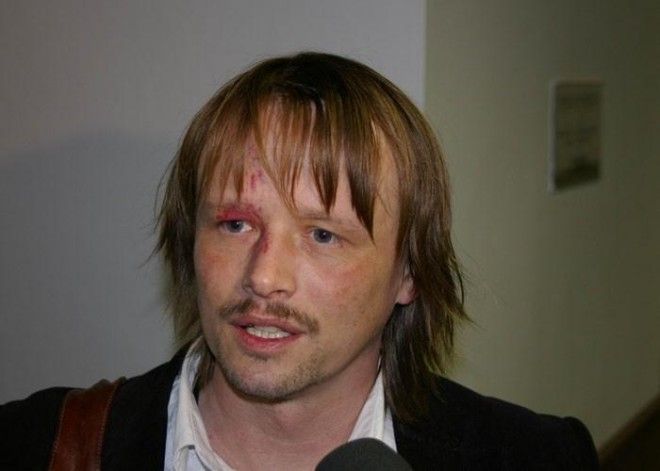
Writer and photographer Tomáš Harabiš established the Valašské království (Kingdom of Wallachia) in 1997 in a southeastern corner of the Czech Republic as a gimmick to promote tourism. Czech actor Bolek Polívka was declared "King Boleslav the Gracious," the ceremonial head of state. While successful as a tourist lure, the micronation suffered a bitter coup d'état in 2011 that saw Polívka stripped of his title after he demanded a financial stake in the fictional country's (real) finances.
6. LEONARD CASLEY // PRINCIPALITY OF HUTT RIVER
In 1970, farmer Leonard Casley was annoyed at the state government of Western Australia over restrictions on his wheat quota. His response? Declare his 29-square-mile farmland his own nation: The Principality of Hutt River, also known as the Hutt River Province. To this day, Casley rules his self-declared nation as Prince Leonard.
According to The Telegraph, they "once declared war on Australia. Receiving no response, [Prince Leonard] ordered a cessation of hostilities a few days later."
7. MICHAEL OLIVER // REPUBLIC OF MINERVA
In the early 1970s, Nevada real estate mogul Michael Oliver and a group of American libertarians tried to claim some coastal reefs about 250 miles off the coast of Tonga as the Republic of Minerva. The King of Tonga was not amused—he sent troops to invade the man-made islands the group had built around the reefs and formally annexed the land before destroying it.
8. PAUL DELPRAT // PRINCIPALITY OF WY
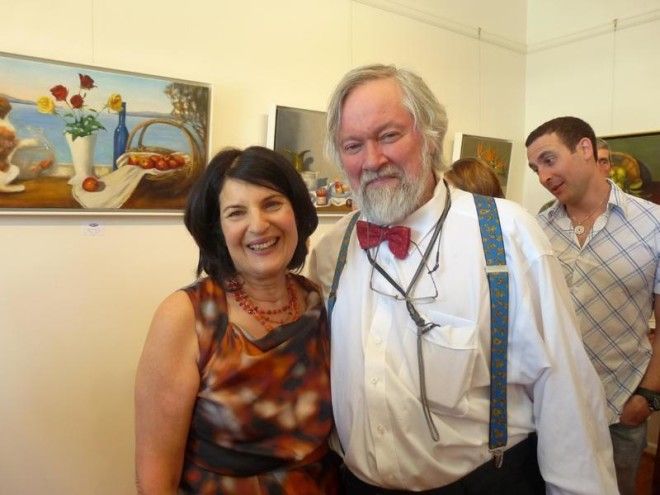
Australian artist and teacher Paul Delprat created “The Principality of Wy, The Artists’ Principality” as a concept in 1960. In 2004, frustrated after a 17-year battle with his local council over an application build a driveway, he made the concept reality, declaring that his property had seceded from the suburb of Sydney where he lived. The residents of the principality include the self-styled Prince Paul, his wife, Princess Susan, their children, and their pet rabbits. Delprat refers to the principality as his "ongoing creative installation."
9. JAMES SPIELMAN AND KEVIN BAUGH // REPUBLIC OF MOLOSSIA
Founded in 1977 by two Portland, Oregon, teenagers as the Grand Republic of Vuldstein, the Republic of Molossia has had a long history. For a time it functioned as a "nomadic country" that traveled in Europe, but has since put down roots in Northern California and Nevada. The republic has also garnered respect from other micronations, and in 2000 hosted the Intermicronational Olympic Games. Unfortunately, the Republic of Molossia is at war with East Germany, which they say still exists “in the form of a small uninhabited island off Cuba." (The uninhabited island, Ernst Thälmann Island, was named after an East German politician as a symbolic act by the Cuban government in 1972.)
10. GIORGIO CARBONE // REPUBLIC OF SEBORGA
The Republic of Seborga was created around 1960 when Italian florist Giorgio Carbone began claiming that his tiny village near the French border had never been claimed as part of Italy. Locals got interested and formed their own semi-serious republic. Carbone has since passed away, and the micronation is now ruled by "His Tremendousness Giorgio II.”
11. GEORGETTE BERTIN-POURCHET // REPUBLIC OF SAUGEAIS
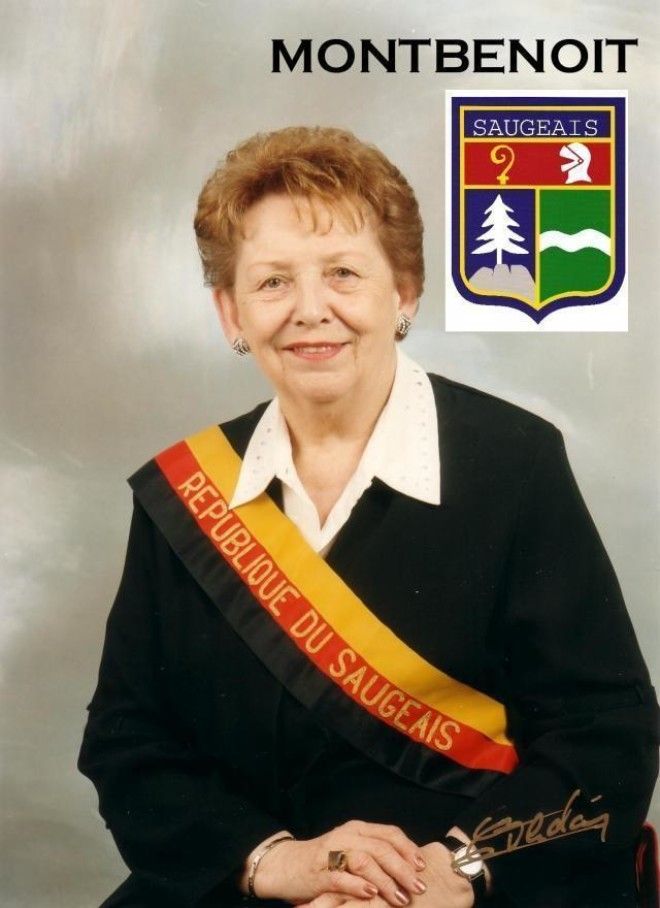
The Republic of Saugeais is comprised of 11 towns near the Swiss border and was founded in 1947 as a local joke. It has since become a tourist destination that helps promote local delicacies, and issues its own entrance passes and official stamps.
12. VARIOUS SCHOOLTEACHERS // KINGDOM OF ELLEORE
In the 1940s, a group of progressive Danish schoolteachers purchased the uninhabited island of Elleore and set about forming their own separatist state. Their attempt wasn’t quite successful (local bird sanctuary regulations interfered with their attempt to build a castle), but the island is still beloved by locals, who descend on it for one week each year to celebrate traditions such as the banning of canned sardines and to play their own invented sport, Cracket.
13. GIORGIO ROSA // REPUBLIC OF ROSE ISLAND
The Republic of Rose Island—known officially by its Esperanto title Insulo de la Rozoj—flourished briefly in 1968 after it was created on an artificial island in the Adriatic Sea by Italian architect Giorgio Rosa. For a while, the platform operated its own restaurant, nightclub, and souvenir shop. The Italian government saw it as a bid to draw tourist money without paying taxes, and destroyed it with explosives the following year.
14. TRAVIS MCHENRY // THE REALM OF CALSAHARA
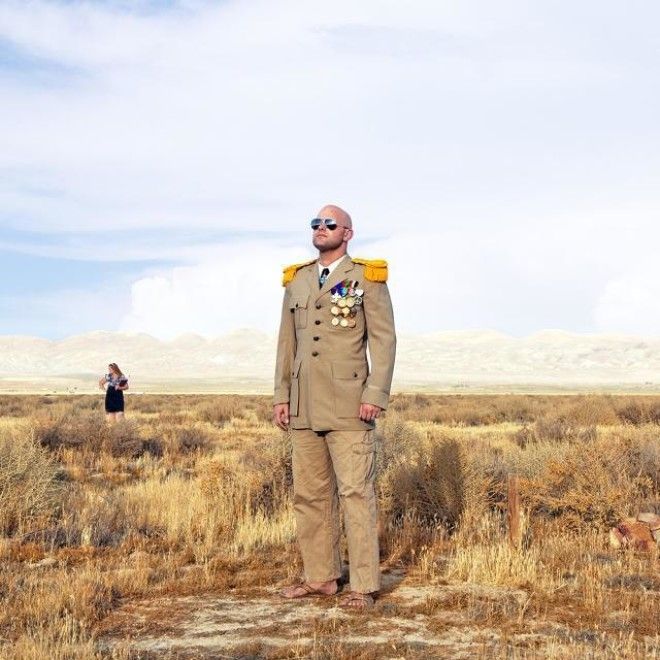
The Realm of Calsahara (a portmanteau of "California" and "Sahara") can be found about three hours by car outside of Los Angeles. The micronation is ruled by one Travis McHenry, who declared the 9.5-square-mile tract of land a sovereign nation in 2009. Their currency is bulgur.
15. ERIC LIS // AERICAN EMPIRE
Founded by a 5-year-old Canadian boy in 1987, this state refers to itself as “the Monty Python of micronationalism.” According to The New York Times, the inhabitants of this primarily Internet-based micronation “worship a being known as the Great Penguin.”
